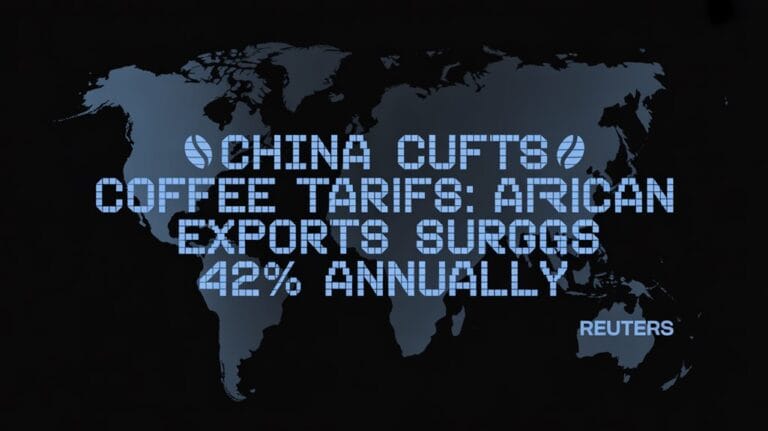China has lifted import taxes on coffee and thousands of other products from 53 African countries, a move taking full effect by mid-2025 under agreements tied to the Forum on China-Africa Cooperation (FOCAC). The tariff impact could considerably enhance coffee competitiveness for African exporters. Under the policy, 98% of African imports to China are now duty-free, eliminating an 8% tax on raw coffee beans. This saves importers roughly $320 per ton in levies and $41 in value-added taxes for coffee priced at $4,000 per ton.
China’s FOCAC agreement axes 8% coffee tariffs for 53 African nations, freeing $320/ton by mid-2025 to boost export competitiveness.
China’s coffee imports from Africa hit $165–170 million in 2023, growing 42% annually since 2014, as global demand rises. Africa produces 12% of the world’s coffee, with Uganda and Ethiopia alone contributing 10%. The tariff elimination includes major African producers like Ethiopia, Uganda, Tanzania, and the Democratic Republic of Congo. These nations—many classified as Least Developed Countries—now join 20 others added to China’s zero-tariff list, expanding from an earlier group of 33.
Ethiopia and two others already enjoyed duty-free status before the policy’s expansion. Eligibility requires diplomatic ties with Beijing, incentivizing political alignment. Producers aim to challenge Brazil and the U.S. in China’s booming coffee market, where consumption is rising among middle-class consumers. China’s domestic coffee sector expanded by 18% last year, reaching a value of $43.6 billion as average annual consumption per person surpassed 22 cups. China’s move contrasts with U.S. trade policies threatening higher tariffs on Brazilian coffee. Analysts note this could shift global trade flows, favoring Africa.
The policy aligns with China’s broader strategy to deepen economic ties with Africa, supporting long-term partnerships. FOCAC agreements emphasize South-South cooperation, with China pledging to streamline customs and promote African products. The initiative specifically targets 44 UN-classified LDCs, 32 of which are in Africa, to optimize developmental benefits. Bilateral trade hit a record $282.1 billion in 2023, with African coffee exports surging. Tariff cuts and rising Chinese demand drove a 42% annual growth rate over the past decade.
Zero tariffs are expected to sustain rapid growth, with projections suggesting 15–20% yearly increases. Producers anticipate higher profit margins, while Chinese companies gain cheaper sourcing options. However, infrastructure gaps in Africa could slow export capacity. As China strengthens its foothold in African markets, the policy underscores shifting global trade dynamics amid rising U.S.-China competition.





